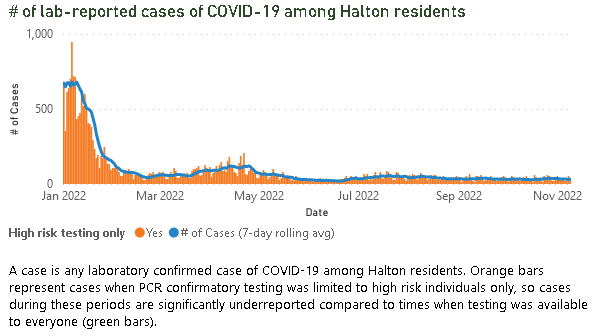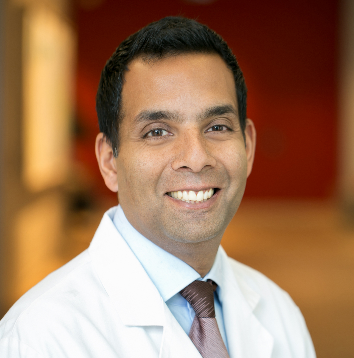 By Staff
By Staff
A regular Gazette reader saw the following in the Globe & Mail and passed it along.
Our observation is that those who are ill find that they are bedridden for more than a week.
The data available on the Covid19 portion of the Regional web site looks like this:
Many of the people with an infection are self isolating at home and may not be counted by the Region. The Gazette is aware of dozens of people who are at home and very very ill.
Wendy Moraghan, a retired Regional police officer, said, as she “lay in bed on day 12 of covid” that she cannot understand why “our Mayor still thinks it’s necessary to have a “media event” swearing in of the same council as last time. One of those CouncillorCovid herself ??boggles my mind.

Return of seasonal flu, RSV and other viruses could spell disaster for older Canadians.
At Toronto’s Mount Sinai Hospital, emergency physician Don Melady, who specializes in the care of older adults, has not seen the same surge in respiratory infections that is overwhelming pediatric hospitals across the country – at least, not yet.
But since influenza and other seasonal respiratory viruses, like respiratory syncytial virus (RSV), tend to cause most severe illness among those at the opposite ends of the lifespan, Dr. Melady is concerned about how he and his emergency department colleagues will manage in the coming months with a potential influx of sick older patients.
“We are understaffed, burned out, tired, under-resourced. So I am worried about any additional strains on our health care system at this point,” Dr. Melady said. “Our best hope is just to have as fully vaccinated a population as we can have.”
As the return of seasonal respiratory viruses, which were suppressed early in the pandemic by COVID-19 control measures, has sent exceptionally high numbers of young children to hospital, some experts are bracing for a similar spike in older adults. Even before the pandemic, influenza caused an estimated 12,200 hospitalizations and 3,500 deaths a year in Canada, with many of those deaths occurring among residents of long-term care.
Now, with fewer health care workers to look after the sick and the persistent risk of COVID-19, some anticipate this cold and flu season will be especially precarious for older Canadians.
“I think it will be a potential disaster,” said Donald Vinh, an infectious disease specialist at McGill University Health Network.
Canada’s Chief Public Health Officer Theresa Tam told reporters on Thursday that cases of RSV and influenza have now risen above seasonal levels. Meanwhile, thelatest federal datashow nearly 300 COVID-19 deaths per week, and more than 6,000 hospital beds are occupied by COVID-19 patients daily – roughly four times the number of COVID-19 hospitalizations a year ago.
Repeating her advice from earlier press conferences, Dr. Tam recommended that Canadians get their COVID-19 boosters and flu shots, wash their hands and wear masks indoors, and stay home if they have symptoms.
If preventative measures aren’t taken, Dr. Vinh foresees a disaster that unfolds in two parts. In the short term, he predicts a rise in viral respiratory infection-related deaths, and in the long term, a worsening backlog in the health care system. That’s because even when they recover from infection, older adults and those with underlying conditions who require hospitalization often become deconditioned, losing their strength and vitality. They may not be able to return home and will need to be placed in care, he said.
“If you require hospitalizations, you’re not just sitting in the bed and then as soon as you finish your infection, you stand up and out the door you go,” he said.
Typically, RSV season starts among children, Dr. Vinh said, spreading first through schools and child care centres before it’s transmitted within homes and to adults. It then spreads to older adults in long-term care, as people visit and take care of those residents, he said.
Dawn Bowdish, a professor and Canada Research Chair in aging and immunity at McMaster University, said she is particularly worried about the coming holiday season, since that tends to be a time when children and young people transmit viruses to older relatives.
The good news is that older Canadians have the highest levels of influenza vaccination uptake in the country, Dr. Bowdish said. And even though COVID-19 outbreaks continue to occur in long-term care, the fatality rate in these facilities has plunged from around 30 per cent early in the pandemic to less than 1 per cent, owing, in large part, to the timing of COVID-19 vaccines and boosters, administered at the beginning of waves to maximize immune protection, she said.
However, Dr. Bowdish explained, unlike COVID-19 vaccines, which work in almost all older adults even with complex medical conditions, the flu vaccine tends to be “hit or miss.” This is why vaccinating the rest of the population, especially children, against the flu is critical for preventing further spread of the virus, she said.
Since there is no vaccine for RSV, masks are an important layer of protection, she added.

Dr. Sinha, is also director of geriatrics at Sinai Health and the University Health Network in Toronto.
Samir Sinha, director of health policy research at the National Institute on Aging think tank, said he does not anticipate the same level of devastation in long-term care that occurred during the first COVID-19 wave, when residents of these facilities and seniors’ homes accounted for more than 80 per cent of all reported COVID-19 deaths in the country. But, he said, staff shortages remain a problem, which worsen during outbreaks as infected workers are required to stay home, and in many places, long-term care residents still share rooms, allowing for viruses to spread among them.
In spite of the crisis early in the pandemic, “I don’t think things have fundamentally changed in our long-term care systems,” said Dr. Sinha, who is also director of geriatrics at Sinai Health and the University Health Network in Toronto.
Dr. Sinha said he also worries that the thousands of deaths that occur in long-term care in a typical flu season have become “normalized,” which does not bode well for the months to come.
“So what are we in for?” he said. “I’m expecting a rough season ahead, particularly for older people.”















